Hezbollah is leading an economy of resistance in Lebanon
For over a year, there has been a severe economic and political crisis in Lebanon, with no end in sight. In view of this, the Lebanese Resistance movement, Hezbollah, has taken a series of steps aimed at helping the financially insecure cope with the negative impact of the economic crisis which has resulted in a shortage of goods and skyrocketing prices.
In a bid to alleviate the hardship for the general population, Hezbollah has opened a chain of supermarkets, selling inexpensive goods at subsidized prices that are about 30 to 50% lower than the market price.
Since October 2019 there has been a severe financial, economic and political crisis in Lebanon, with no end in sight.
Underlying the crisis are fundamental problems mainly stemming from the endemic corruption and a chronic state of political instability gripping the country.
Additional difficulties have been added to the fundamental problems, the COVID-19 crisis; the negative effects of US sanctions on the Lebanese economy and banking system, the explosion of the port of Beirut, difficulties stemming from the global war on Syria and the lack of external assistance due to Lebanon's failure to carry out the reforms required by the international community.
This translated into a shortage of basic and essential products like food, fuel and medication, difficulties in the banking system and even the initial signs of weakened security.
In view of this, Hezbollah has made a series of moves aimed at helping the Lebanese population cope with the negative impact of the economic crisis.
As the Lebanese market suffers from a shortage of goods and skyrocketing prices, Hezbollah has opened a chain of supermarkets, schools and oil depots in southern Lebanon, South Beirut, and the Bekaa Valley.
The Supermarkets sell inexpensive goods at subsidized prices that are about 30 to 50% lower than the market prices.
Payment is made through a special shopper’s card, or the al-Sajjad card, named after the fourth Shia Imam who attached great importance to mutual solidarity in society.
A drug shortage in Lebanon also prompted Hezbollah to begin purchasing Syrian and Iranian inexpensive drugs and medical products, which were distributed to Hezbollah affiliated pharmacies to cover the shortage.
A fuel shortage that has led to rising prices of fuel products and frequent power outages also prompted Hezbollah to purchase fuel products and supply fuel to gas stations in the resistance areas where the US undeclared sanctions are leading to critical fuel shortages in gas stations.
To help the Lebanese people overcome the severe economic crisis compounded by the collapse of the national currency and an insane increase in prices, Hezbollah has become the last resort for the Lebanese public to survive the worst economic crisis in the country's modern history.
Following the difficulties caused by the economic crisis in Lebanon, the response by Hezbollah was direct aid of its community by opening a chain of supermarkets in South Lebanon, in South Beirut, and in the Bekaa Valley.
These supermarkets are selling inexpensive goods at subsidized prices, despite the fact that they are not subsidized goods, but with prices lower than 50% of the market price.
Why on earth would that call for any scrutiny or even frustration from anyone?
You're talking about a highly divided Lebanese society, you're talking about a kind of polarization between East and West, if you want to say, between people who follow the western hegemonic powers, namely the USA and other powers who support the tightening of the western grip over the country and over the region and over the area as we all know and between others who are the supporters of their own country, their domestic genuine interest of the people and the land, the liberators of the land, those who are deeply entrenched in their lands.
This kind of division is going to be translated into positions of frustration from one area, and the from one crowd, from one audience, and on the other hand, it's a sigh of relief, it's a hilarious and happiness for the faithfulness, for the loyalty, for the attention that came from Hezbollah, from the resistance, to the Lebanese people.
I say the Lebanese people, yes, because the Shia areas that you mentioned, they represent a part of the Lebanese society.
If we have the capability we are starting to support the most stricken areas, of the areas that are under the highest pressure from the United States of America. And we all know that, and all the Lebanese know that, if our capabilities are enough, we are going to extend this to whoever would accept it or would want it because as I told you, this has been a source of criticism from other sides. We don't get about it we are talking about people who have saved their lives, who have sacrificed their blood, who have given everything to this, the true path of resistance and national nationalism.
Dr Ibrahim Mousawi, Lebanese MP, Hezbollah
What actually brought about a certain kind of frustration, which is odd but needs to be explained, is the payments for these goods in the Hezbollah supermarkets, which are being made through a special shoppers card called the al-Sajjad card, named after the fourth Shia Imam, Zayn al-Abidin, the son of Imam Hussain, peace be upon him, who attached great importance to mutual solidarity in society, that was his legacy. Does that suggest in any way that this card is strictly for the Shia of Lebanon?
Absolutely not. I did, I did tell you this because when we talk about the universality of the message of Islam, it's for everybody anywhere, anyone who is in need.
When we talk about Imam Sajjad, Imam Zayn al-Abidin, peace be upon him, we're talking about a source of mercy, a source of kindness, and grace for all.
And here we are talking, especially on the, on the eve of Ramadan, may all of the prayers of Allah be upon all the believers and all the people; this is the month of mercy.
We wanted to emulate this great Imam who used to have the goods of the people there, of the poor, of the orphans, of the needy. He used to go from one place to another, carrying this over his back and not showing himself during the nights and during the days, he was like going there and they didn't know about him.
It wasn't until he died that the people knew that he was the one who was sending a message. Of course, at the time, the society was not that complicated. The houses were very few, if we if we talk about 100 years ago or 200 years ago in the villages, everybody would know everybody what evolved if you're talking about 1300 or 1200 years ago.
So, this is the message that we want to send. It's not limited, it's not restricted to these areas, but it is the beginning, and, hopefully, we will be able to extend this to all, to everyone who is in need.
Dr Ibrahim Mousawi, Lebanese MP, Hezbollah
Sanctioning Lebanon is collective punishment
Following a severe fuel shortage, which has led to the rising of fuel prices and even power outages, the bankruptcy of the Lebanese Central Bank, which is a result of decades of corruption in Lebanon, Hezbollah has begun purchasing a variety of fuel, especially diesel fuel, and supplying gas as well as oil to gas stations that are not receiving any fuel from the government, especially in stations that happen to be in areas that support Hezbollah.
This is basically collective punishment, but if the central bank is bankrupt, how come only the Shia communities are suffering from this fuel shortage?
Well actually it's not only the fuel shortage in Shia area to tell you the truth, there are restrictions on the borders here and there, and there is another point that I want, Unfortunately, when we talk about the merchants, the big merchants, those who have the ability to make any kind of restriction over the fuel oil, over these goods, they want to keep (hoard) them so when the prices go up, they would make use of it.
This is a big problem, actually. But to tell you the truth, Hezbollah, not Hezbollah, the Iranian side, the Iranian Ambassador to Lebanon has made it very clear to the Lebanese, to the Lebanese government, everyone, that Iran is ready to hand out the help for the Lebanese community and for the Lebanese government, for the Lebanese state to take the fuel from Iran and they would use the Lebanese lira, the Lebanese Pound, this, this is unprecedented and this would help in easing, if you want, and solving the problem of the fuel.
This would save a very important (significant) amount of money for the government, but the government refused.
They don't want to take this position. The same offer has been given about the electricity that Iran is ready to build fields and plants of electricity, so it could be locally and domestically here in Lebanon generated, not to take from any side.
Again, it was refused. So it is the general help for all of the Lebanese people, some accepted other refused. This is the problem, again, those who refuse, some of them because they hate the axis, the Axis of Resistance, because they follow another completely different axis, or another area.
Other people are afraid of more restrictions and more sanctions from the American side.
We in this axis of resistance, we are going to do everything possible to help the Lebanese, generally and our people, particularly, to ease the situation over them.
Dr Ibrahim Mousawi, Lebanese MP, Hezbollah
Let us talk about expanding the services of Qardh al-Hassan association just after the financial collapse in Lebanon. It is clear that these plans are Hezbollah's way of dealing with the economic downfall, but now they have their own chain of banks as well as ATM machines, doesn't that validate the notion of a state within a state?
Absolutely not. I could totally deny and refute this. to tell you the truth, the government is there around them, this is, this is something, when you talk, you're not talking about a chain of banks or branches of banks, you're talking about ATMs, it is only restricted to this charity groups called Qardh al-Hassan.
It has been there, Qardh al-Hassan has been there as an institution since more than 30 years. But yes, truly it has been expanded after the sanctions that have taken place because people want to put their money in a safe place that they can take it anytime they want and they are not taking any kind of interests for, for having it there.
This is something that has been, you know, when you put people at risk and they make it an opportunity. This is the madness that has been changed into an opportunity by Hezbollah, by the axis of the resistance, by the people who trust the resistance.
This has pushed [encouraged] many people because they talked about Qardh al-Hassan, many people felt that it is their duty to go and put their money there, because it is safer than the alternatives.
If you ask any of the experts they tell you the number one issue in Lebanon is trust.
Dr Ibrahim Mousawi, Lebanese MP, Hezbollah
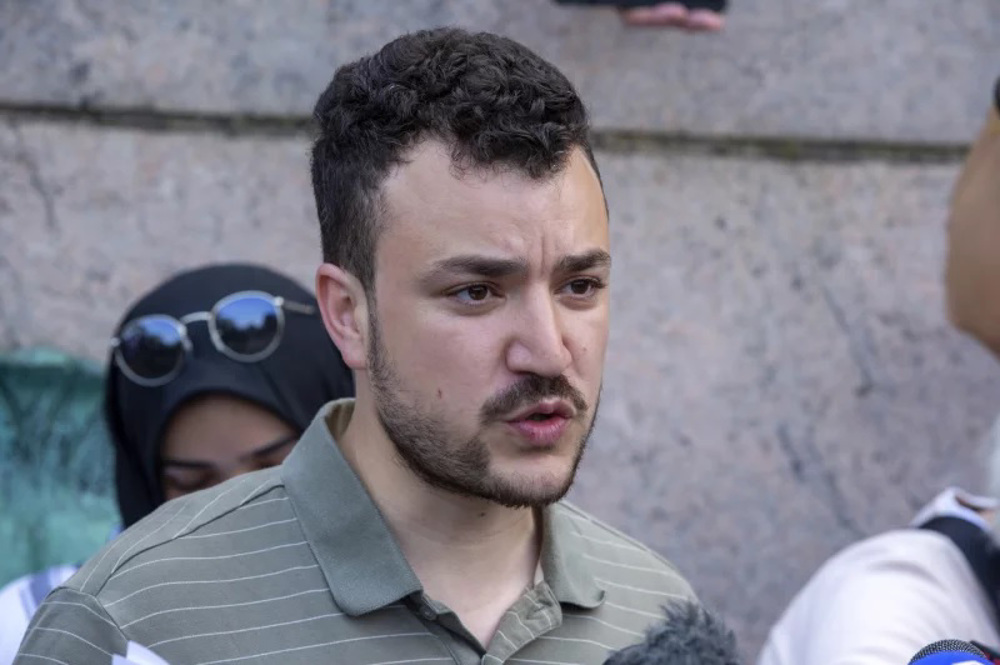
Columbia graduate detained without evidence of wrongdoing
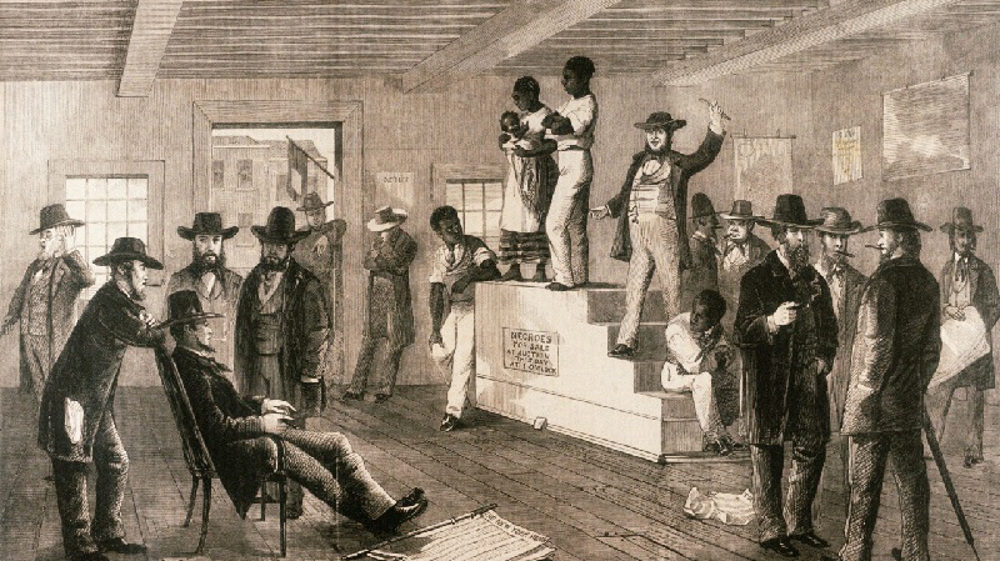
US slavery emancipation day celebrated in Washington
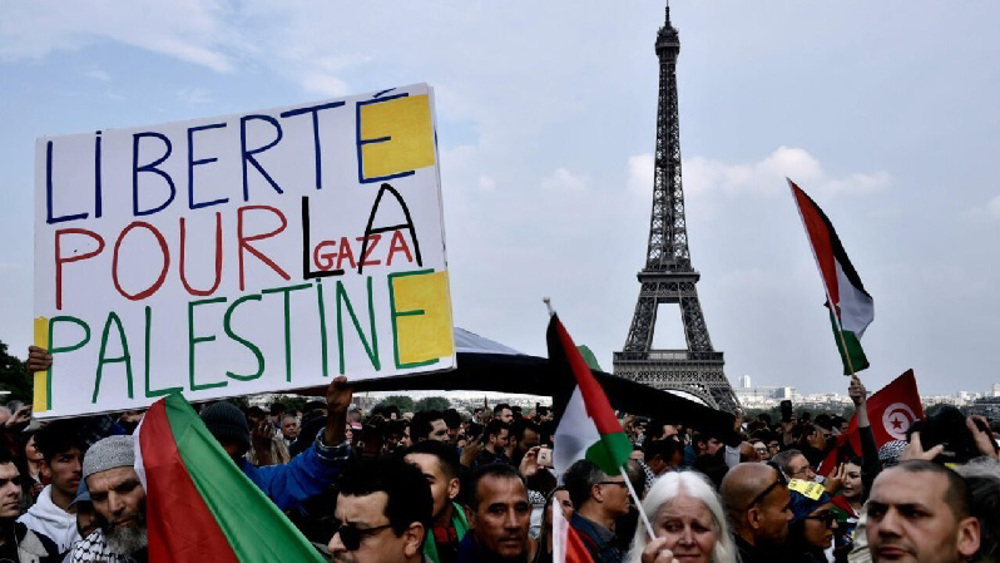
Pro-Palestine protest in Paris
Saudi defense minister in Iran for talks on regional developments
Three days from freedom: 64th Palestinian abductee dies in Israeli captivity
IAEA should maintain neutrality in Tehran-Washington talks: Iran nuclear chief
VIDEO | Press TV's news headlines
Hamas: Israel tortures Palestinian abductees while we treat captives humanely
Israeli captive in Gaza holds Netanyahu responsible for continued captivity
Tehran rejects 'baseless' UK claims about links to criminal groups
Palestinian hospital chief ‘exhausted from torture’ in Israeli prison: Lawyer


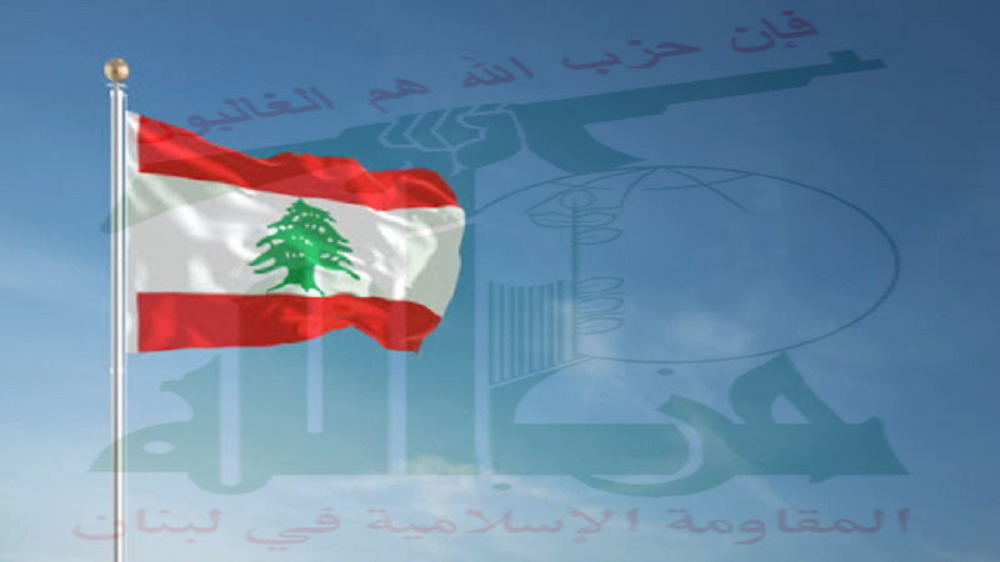



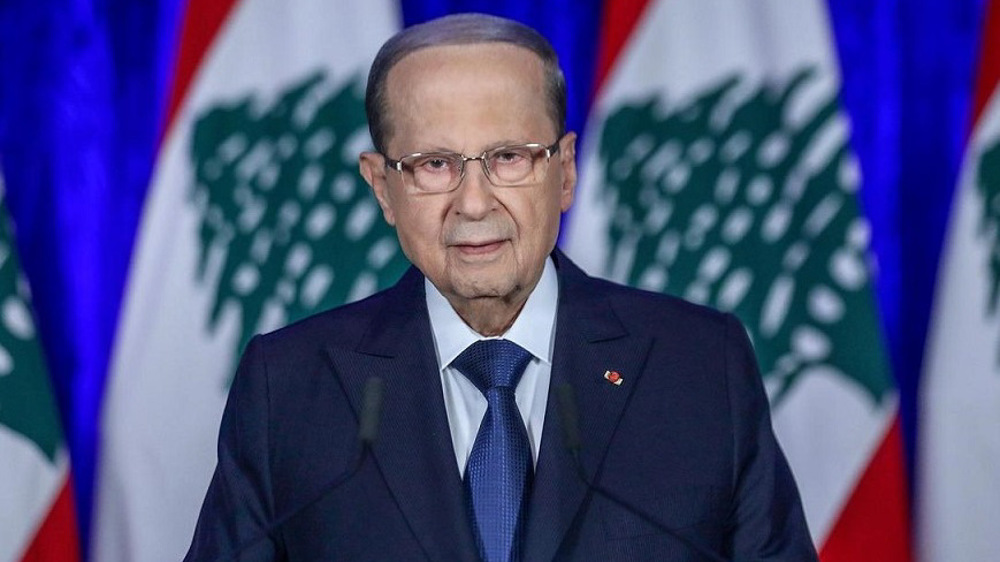
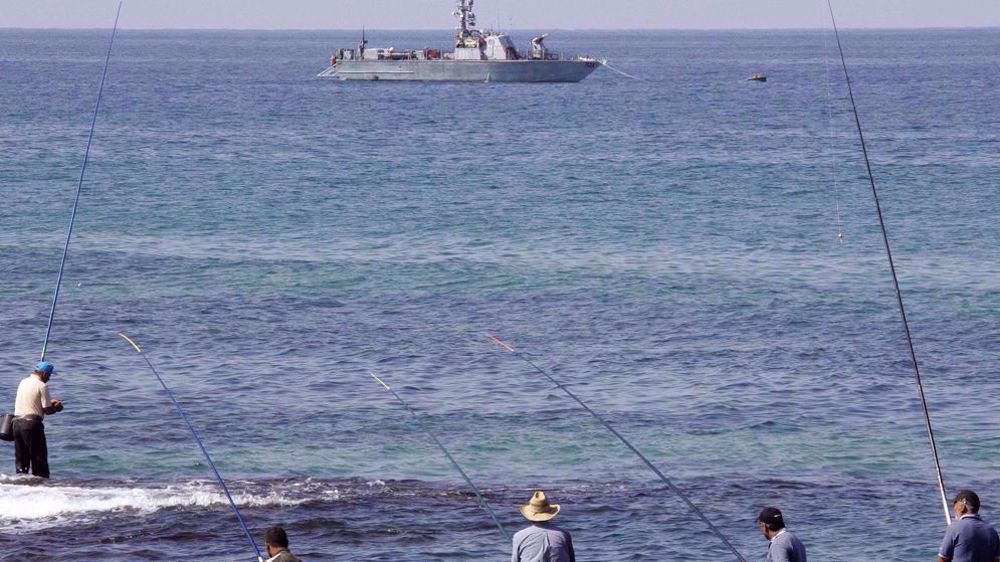
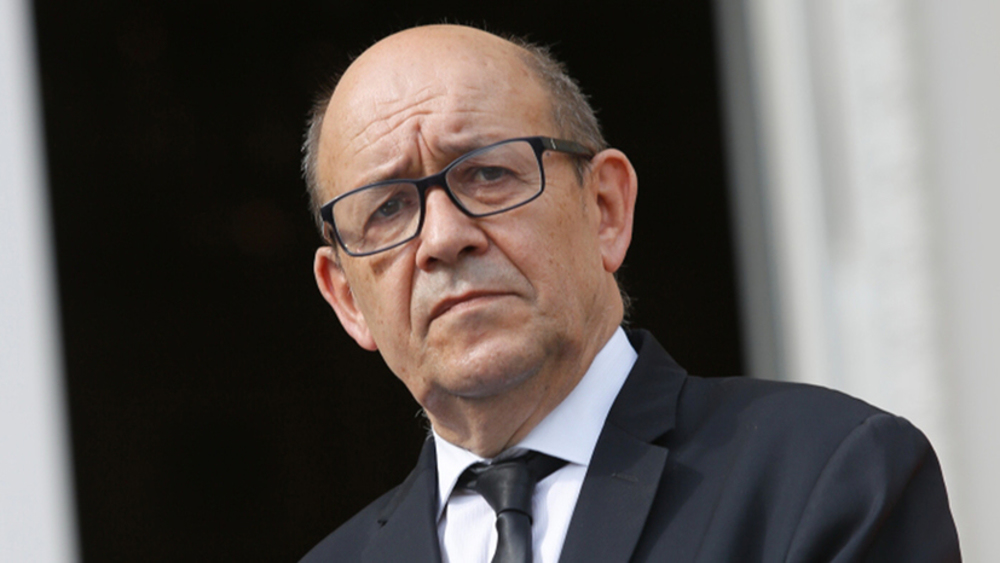
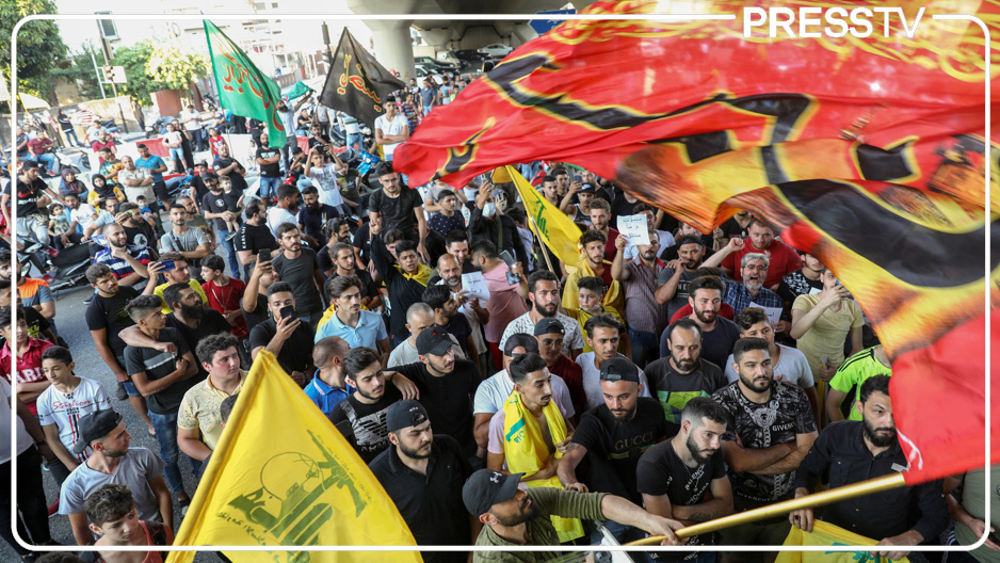
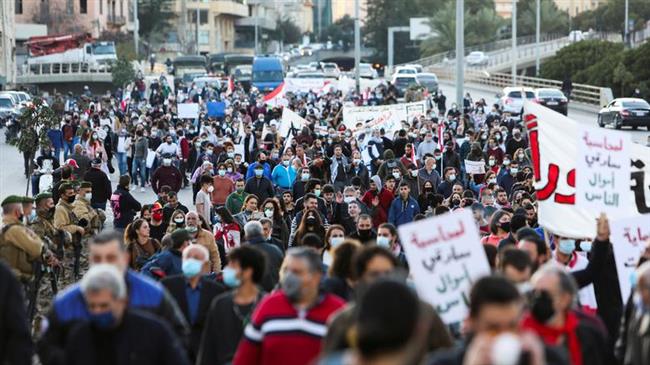
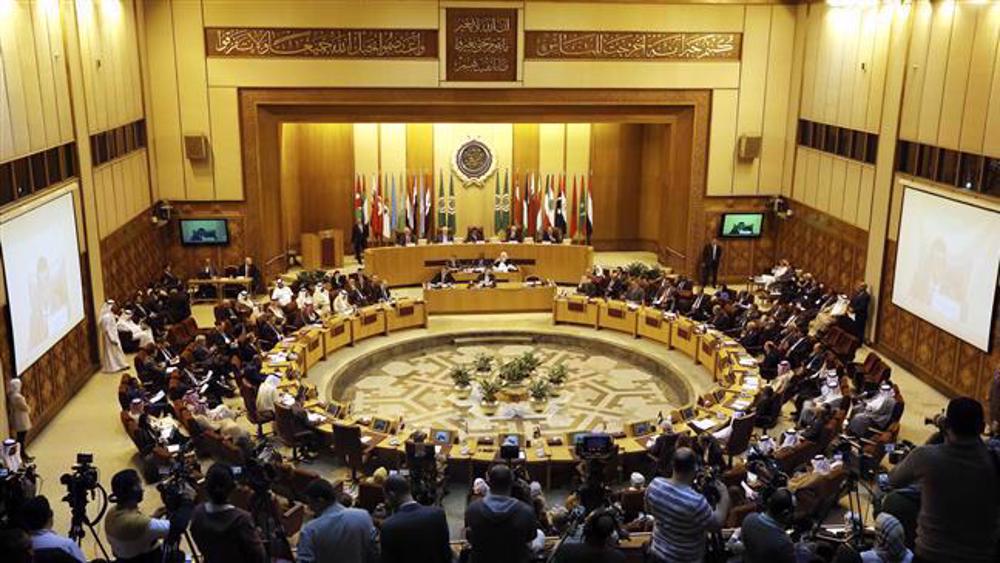
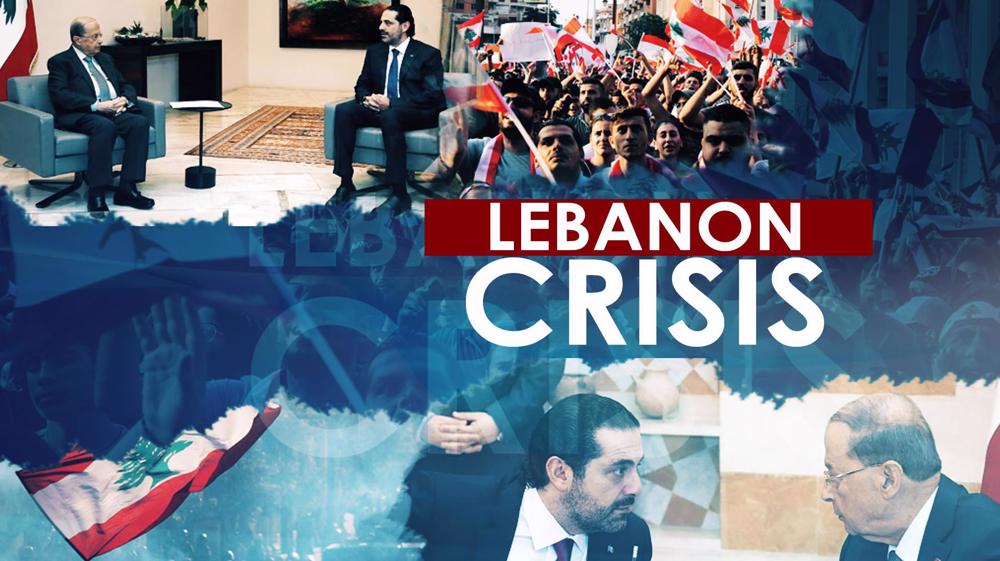
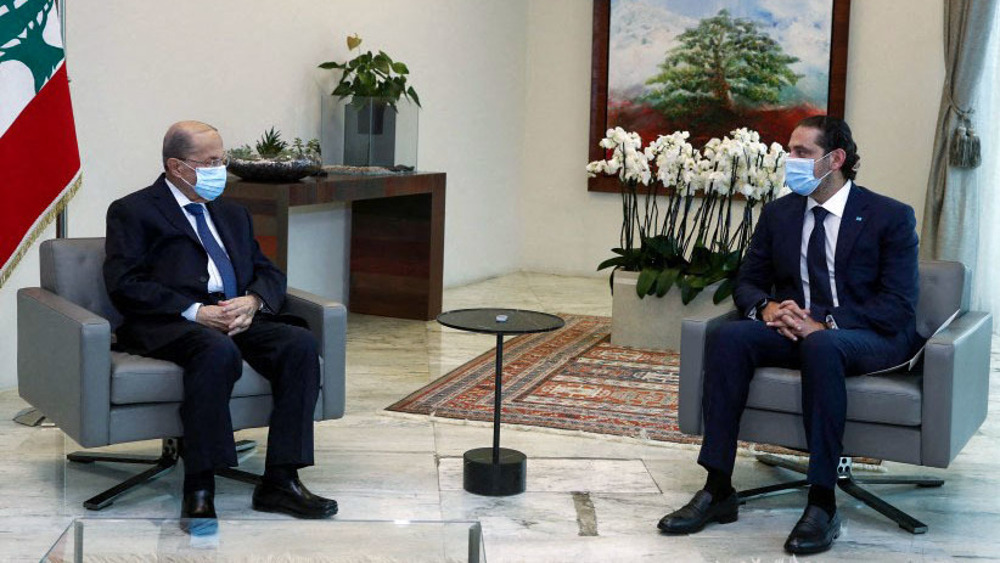
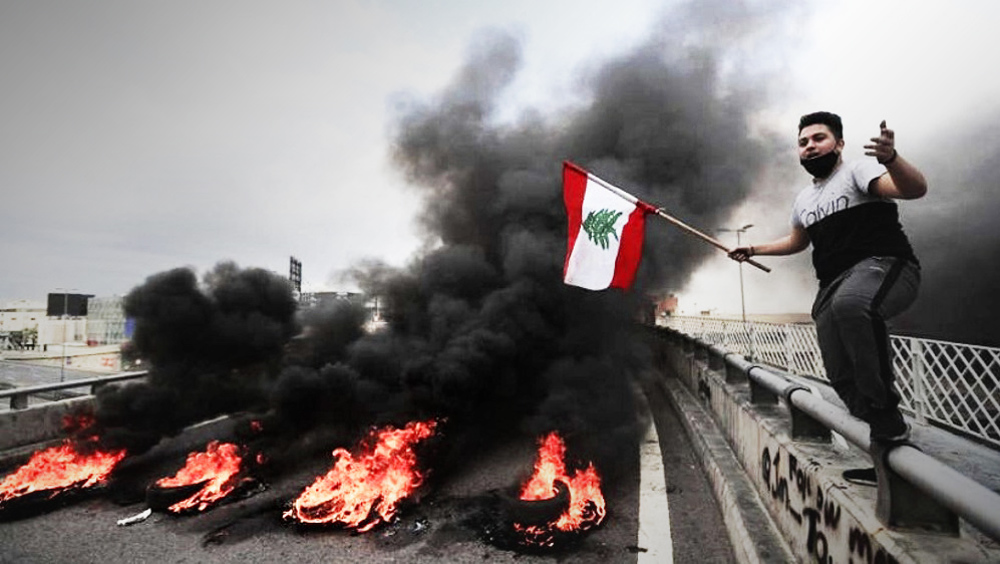

 This makes it easy to access the Press TV website
This makes it easy to access the Press TV website